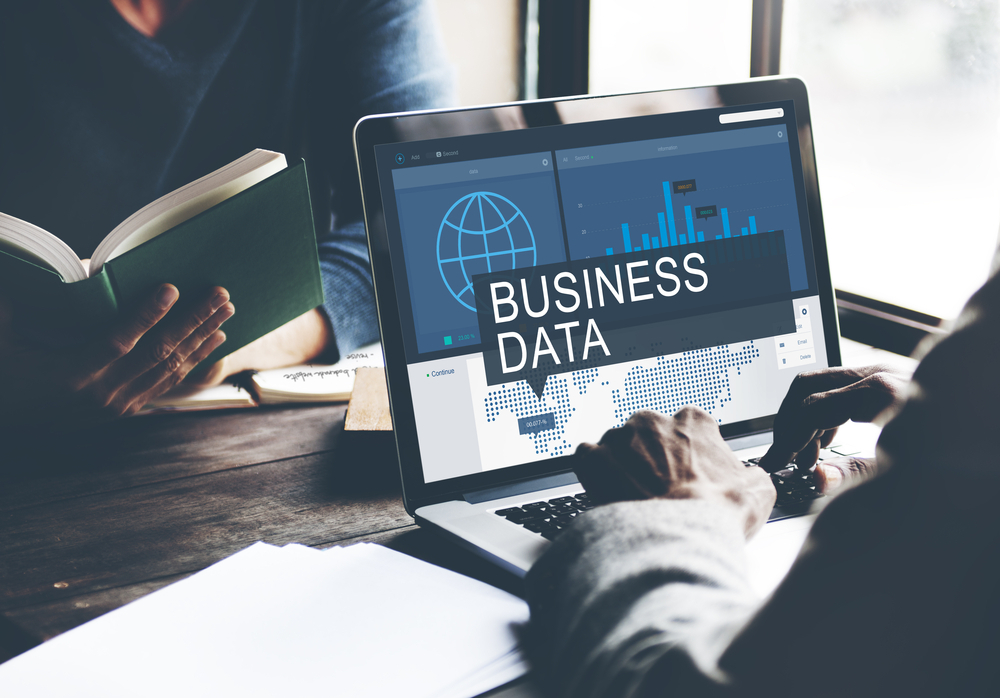
In today’s dynamic business landscape, knowledge is power, and having the right information at your fingertips can be the key to success. Enter B2B data – the treasure trove of insights about other businesses that can revolutionize how you operate, strategize, and conquer new horizons!
Especially, a B2B demand generation company, which aims to enhance its understanding of other businesses, make informed decisions, identify new business opportunities, and support its marketing and sales teams.
This article provides an in-depth exploration of several key aspects related to the meaning of B2B data, such as its definition, the reasons for its utilization and significance, the importance of data validation, the advantages of leveraging data for B2B sales, and more.
Let’s delve into the very heart of this invaluable resource and discover how it can transform the way you conquer new horizons!
What is B2B Data?
In the realm of B2B, data refer to pertinent information concerning other businesses. Its main purpose is to act as a catalyst for marketing initiatives and novel sales strategies.
Businesses employ this high-quality data to create additional business prospects, enhance lead generation, and bolster market research, among other benefits.
Essentially, data in B2B entails comprehensive details about other businesses, including company identifiers, funding sources, revenue figures, and additional relevant information.
Now that we understand B2B data better let’s dive into the compelling reasons to leverage it and its critical role in propelling corporate success.
Importance of B2B Data
Are you leveraging cold outreach or Account-Based Marketing (ABM) strategies to drive sales growth?
If that’s the case, Business-to-Business data becomes a critical asset for you. It empowers you in B2B customer segmentation that your sales team can effectively utilize to expand your lead pipeline.
Let’s explore some practical benefits of B2B data:
The data in business-to-business holds immense value as it enables different teams to gain a holistic understanding of other businesses.
Benefits to the Sales Team
- Enhance client investigation: Utilize abundant data on potential clients to categorize and investigate them based on specific criteria, improving your understanding of their characteristics and preferences.
- Improve product and industry knowledge: B2B data solutions provide valuable insights into customer sentiments, allowing you to consider feedback and make necessary adjustments to your products or services, thus enhancing your industry expertise.
- Ask tailored questions: Leverage personalization as a powerful tool to address prospects’ unique needs and pain points, enabling more effective communication and engagement.
- Better understand client needs: Utilize data to create a comprehensive profile of your clients, gaining deep insights into their requirements and preferences, enabling you to tailor your sales pitch accordingly.
- Identify key individuals and communication channels: With data, you can pinpoint key decision-makers and influencers within target companies, facilitating focused outreach and effective communication strategies.
- Enrich existing data for informed decision-making: Augment your current dataset with relevant B2B data enrichment solutions, enhancing its accuracy and making it more actionable, empowering you to make more informed and precise business decisions, provided your existing data is well-preserved and appropriately managed.
Benefits to the Marketing Teams
- Develop an ideal customer profile (ICP) using intent data for sales and marketing
- Boost demand generation by leveraging high-quality B2B data to identify industry-relevant content that drives demand.
- Optimize lead generation using data to target specific audiences and cater to their needs rather than relying on broad mass-marketing approaches.
- Drive data-driven decisions by leveraging insights to reduce guesswork and make informed choices.
- Enhance your understanding of your target audience, enabling personalized and relevant content tailored to your specific market.
Benefits to the Revenue Operations Teams
Revenue Operations (RevOps) seamlessly integrates sales, marketing, and customer success operations throughout the customer lifecycle.
This strategic approach aims to optimize operational efficiency and ensure all teams are responsible for revenue outcomes. RevOps facilitates a cohesive and accountable revenue generation process by aligning these key functions.
- Data enrichment: Enhance your operations with data enrichment to gain more precise insights, improving efficiency and effectiveness.
- Goal alignment: Foster synergy by aligning sales, marketing, and B2B customer success operations around a unified set of objectives. This alignment promotes a cohesive approach to achieving business goals.
Understanding the significance of B2B data is only the beginning. Learning the crucial role of data validation is important to maximize business insights and decision-making.
Why Is It Important To Validate Your Data?
If you are experiencing low engagement rates, high email bounce rates, or relying on outdated contact lists, data validation can effectively address these issues and drive improvements.
Ensuring the Validity of Your Data
Maintaining pristine and accurate B2B data exchange solutions is of utmost importance. Various bulk email validation services meet your requirement when dealing with a sizable contact database.
These services efficiently verify the validity and usability of your contacts.
Another approach is manually sending emails to your list and eliminating bounced contacts and outdated emails from your database.
While there isn’t a universally ideal timeframe, removing emails that have been in the database for one to two years is generally recommended for optimal sales performance.
Harnessing the power of B2B data quality is not just a suggestion but a crucial necessity. Utilizing data-driven strategies can significantly transform your sales efforts and yield remarkable results.
Why Should You Use Data for B2B Sales?
Leveraging relevant and accurate data gives businesses invaluable insights into their target market, customer preferences, and industry trends.
This empowers sales teams to make informed decisions, optimize B2B lead generation strategies, personalize outreach, and drive higher conversion rates.
Here is how you can utilize data for your B2B sales:
-
TAM Identification
TAM identification refers to delineating your Total Addressable Market, representing the vast pool of prospective prospects within your target market.
-
ICP Development
Developing an Ideal Customer Profile (ICP) entails crafting a comprehensive depiction of your ideal buyer, serving as a launching pad to identify prospects with similar characteristics.
-
Lead Generation
It is critical to identify your ideal customers and procure their contact details, preferably direct-dials. The quality of sales data plays a paramount role in accomplishing this objective, as it directly impacts the effectiveness and efficiency of this activity.
-
Outbound Sales
The outbound sales process involves B2B sales professionals proactively contacting prospects through phone calls, B2B email marketing, social selling, and networking.
This proactive approach allows salespersons to initiate and cultivate meaningful engagements with potential clients, B2B lead nurturing, and explore new business opportunities.
-
Demand Generation
B2B marketers employ demand generation techniques to entice new buyers through diverse marketing activities like content marketing, email marketing, and PPC.
-
Analytics
Tracking B2B sales and marketing metrics improves performance, but the data’s significance goes beyond. GDPR-compliant providers like Binary Demand offer top-quality B2B data, enhancing revenue and unlocking hidden potentials for sales and marketing teams.
Access to reliable B2B data-sharing solutions is paramount for businesses aiming to fuel their growth and expand their market reach. Obtaining accurate and comprehensive data requires a strategic approach and the utilization of reputable sources.
How Do You Get B2B Data?
From leveraging public sources and market intelligence to partnering with trusted data providers, let’s uncover the most effective ways to procure valuable data from a B2B data solutions company that can drive your business forward just for you.
-
Public sources
These are any publicly accessible data sources that are unrestricted. They consist of the following:
- Websites
- Social profiles
- News articles
-
Private sources
Any data sources protected from public view and requiring a subscription, authorization, or payment fall under this category. They consist of the following:
- Paywalled websites
- Market and financial intelligence
- Data as a Service(DaaS) providers
It is ideal for B2B organizations to work with high-quality, internationally compatible data. With the help of a few sales intelligence tools, B2B sales and marketing teams can:
- Discover company profiles and enterprises from across the world in a database.
- Start multi-step outbound marketing with your ideal customer profile in mind.
- Improve the data in your CRM to ensure that your data is updated.
- Use data that complies with the required legal requirements to ensure GDPR compliance.
Conclusion
B2B data is the key to informed decisions and remarkable growth. Embracing data validation is important to maintain accuracy and leverage its power to conquer new opportunities.
Stay ahead in the dynamic business world by taking the help of Binary Demand solutions and making data-driven decisions. Unlock a future of endless possibilities with valuable B2B data insights.
FAQs
Q. What information is typically included in a company database?
A. A company’s customer database is a structured collection of customer information. It can range from a basic spreadsheet with names and email addresses to advanced database software that incorporates data on buyer behavior, preferences, and demographics.










